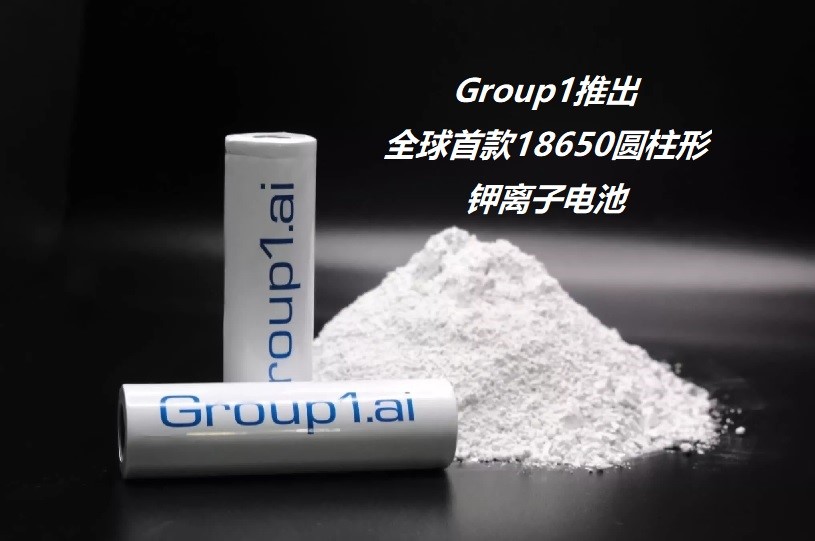Introduction: The future of energy storage
In the context of the global energy transition and the rapid development of electric vehicles, there is an increasing demand for efficient, safe and cost-effective battery technology. Although lithium-ion batteries have dominated the market for a long time, the industry is looking for alternatives due to limited resources and high costs. The emergence of potassium-ion batteries marks an important breakthrough in energy storage technology.
Technological innovation: the birth of the potassium-ion battery
Group1 has launched the world's first 18650 cylindrical potassium-ion battery. The battery is not only dimensionally compatible with conventional 18650 lithium-ion batteries, but also offers significant innovations in materials and performance. The battery uses potassium ions as charge carriers and incorporates commercially available components commonly found on the market, such as graphite anodes, separators, and electrolyte formulations, simplifying the supply chain and reducing reliance on critical minerals.

Pictured: Group1 launched the world's first 18650 cylindrical potassium-ion battery
Performance advantages: characteristics of potassium-ion batteries
Potassium-ion batteries exhibit an energy density of 160-180Wh/kg comparable to lithium iron phosphate batteries, and have superior cycle life and strong discharge performance. These features make it a great potential for high-performance mobile applications such as electric vehicles. At the same time, the nominal voltage of 3.7V of the potassium-ion battery ensures compatibility with modern electronic devices and systems.
Challenges and Opportunities: The Road to Commercialization of Potassium-Ion Batteries
Although potassium-ion batteries show great potential in terms of technology and performance, there are still many challenges in their commercialization. Technology maturity, market demand, policy support, and investment environment are all key factors influencing its commercialization. The industrialization experience of sodium-ion batteries shows that through technological innovation and industrial chain cooperation, emerging battery technologies can gradually overcome these challenges and achieve commercial applications.
Application prospects in the field of electric vehicles
Electric vehicles place extremely high demands on battery performance, including high energy density, fast charging capability, long cycle life, and safety. Although potassium-ion batteries are comparable to lithium iron phosphate batteries in terms of energy density, further technical research is still needed in terms of fast charging, low-temperature performance and safety to meet the comprehensive requirements of electric vehicles.
Conclusion: The future outlook of potassium-ion batteries
The birth of potassium-ion batteries has brought new options and solutions to the field of energy storage. With the continuous advancement of technology and the gradual recognition of the market, potassium-ion batteries are expected to occupy an important position in the field of energy storage and electric vehicles in the future. At the same time, it also reminds us that continuous technological innovation and industrial chain cooperation are the key driving forces to promote the development of the industry.






